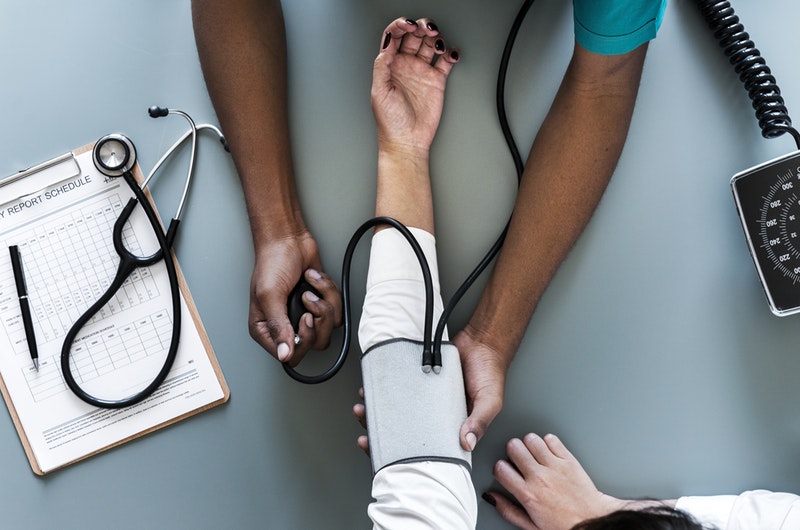People suffering from Crohn’s disease experience a distracting level of chronic pain. Chronic pain creates stress and other issues to the point where normal daily living is no longer possible. In the most extreme cases such issues lead to relationship problems, reduced social activities and loss of employment. What is Crohn’s disease? What are its types and symptoms?
Crohn’s disease is categorized as a chronic inflammatory bowel disease (IBD), which causes your gastrointestinal tract to experience inflammation indefinitely. Over three million U.S. residents suffer from IBDs such as Crohn’s disease in 2021. What are the most popular ways to treat this disease? Do any natural lifestyle changes help mitigate Crohn’s disease symptoms? Read ahead to learn helpful information about Crohn’s disease and common medical and natural lifestyle treatments today.

Crohn’s Disease (history & general information)
Crohn’s disease was named after the doctor and colleagues who discovered it. Dr. Burrill B. Crohn and colleagues Drs. Gordon D. Oppenheimer & Leon Ginzburg outlined details about the disease in 1932. The disease is categorized as an inflammatory bowel disease (IBD) because of the way it causes chronic gastrointestinal (GI) inflammation. This inflammation results in unfortunate/overwhelming levels of chronic pain, which add stress and complications to normal daily life.
Approximately three million U.S. residents suffer from IBDs, which include Crohn’s disease and ulcerative colitis. Having an IBD does not mean you will automatically get Crohn’s, although it is not possible to know in advance what the risk level of contracting the disease actually is. Every element of the GI tract from entry to exit points is susceptible to contracting Crohn’s’, however the disease most commonly impacts the beginning parts of the colon & ileum (last part of the small bowel). Various types of Crohn’s disease exist and are commonly diagnosed in patients between twenty and forty years old.
How Crohn’s Disease Affects Normal Daily Life
Crohn’s disease adversely impacts your biological ability to absorb required integral nutrients. This creates fatigue, which in turn adversely impacts your ability to get through each day with any normalcy. The ability to properly digest food and expel waste is also significantly reduced in many cases. An IBD attacks your immune system, leading to inflammation and damage in your gastrointestinal/bowel system. The damage is painful and affects more than your ability to get through each day – it often affects every aspect of your life.
Crohn’s disease symptoms come and go at random times. This makes life highly unpredictable and limits your ability to plan. People suffering from Crohn’s also suffer weakened mental/emotional health, leading to apathy, lethargy and depression. This is especially common when pain/symptoms return after Crohn’s goes into temporary remission, giving a short reprieve but also false hope your suffering is over.
Symptoms
Symptoms of Crohn’s disease are not limited to your gastrointestinal system, although most are experienced in/around it. Frequent diarrhea, primarily liquid bowel movements and urgent bowel movements are the most common symptoms associated with Crohn’s. Difficulty producing bowel movements, rectal bleeding, anal drainage, bloody stools and abdominal pain/cramping are additional GI system symptoms of the disease. Additional symptoms of Crohn’s disease include:
- Fatigue.
- Weight loss.
- Loss of appetite.
- Joint pain/stiffness.
- Fever.
- Inflammation of the eyes.
- Sores in the mouth.
- Kidney stones.
- Anemia (iron deficiency).
- Liver inflammation.
- Sexual and/or growth developmental delays.
Types
Various types of Crohn’s disease exist, all of which are commonly diagnosed in patients between twenty-forty years of age. The most common type of Crohn’s disease is Ileocolitis, which has symptoms of diarrhea, cramps, abdominal pain and severe weight loss. Ileitis is another type of Crohn’s with similar symptoms to Ileocolitis. Ileitis only impacts the ileum, however, and severe cases also cause inflammatory abscess in the lower right abdominal quadrant. Additional types of Crohn’s disease include:
- Gastroduodenal Crohn’s disease (affects stomach/small intestine; symptoms include vomiting, loss of weight/appetite & nausea).
- Jejunoileitis (small intestine develops inconsistently inflamed areas; symptoms include cramps after meals, varied levels of abdominal pain, diarrhea & lengthy periods of severe fistulas inflammation).
- Crohn’s granulomatous colitis (affects colon only; symptoms include diarrhea, anal fistulas/abscess/ulcers, skin lesions & joint pains).
Most Popular Ways to Treat Crohn’s Disease
Two of the most popular ways to treat Crohn’s diseases are through medication and surgery. Combination treatments are also used but present increased risks of toxicity and/or side effects. Popular medications used to treat this disease include Aminosalicylates (5-ASA), immunomodulators, corticosteroids, immunomodulators, antibiotics and biologic/biosimilar therapies. Popular surgeries used to treat Crohn’s include:
- Small bowel resection.
- Subtotal colectomy.
- Proctocolectomy/Ileostomy.
How Natural Lifestyle Changes Help
Problems caused by Crohn’s disease include body image insecurity, damaged/estranged relationships and an inability to get to work and/or school. Certain natural lifestyle changes are able to help in some ways, however. For example, resting your bowels by eating and drinking only specific foods/liquids for days to weeks at a time might reduce symptoms. Your doctor might also request you fast for a limited time to also reduce symptoms/complications. In the latter cases you might have to be hydrated and given nutrients via an IV.
Eating softer foods with minimal seasoning and flavor in place of high-fiber and spicy foods sometimes helps reduce pain/symptoms. Plan your activities in advance and always be aware of where the nearest lavatory is located (wherever you are). Stop eating any foods causing increased discomfort even if such food is not normally associated with exacerbated Crohn’s symptoms. Women suffering from Crohn’s might have issues becoming pregnant or experience complications during pregnancy, the latter of which might result in the necessity of a C-section to deliver your child safely.
Finally, Crohn’s disease is known to drastically impact the mood of many patients. Mood swings, depression, anxiety, and angst are all common results of suffering from Crohn’s disease regardless of patient age or gender. Consider visiting a counselor/therapist or attending support group meetings on a regular basis if your physical Crohn’s disease issues are creating mental/emotional issues as well.